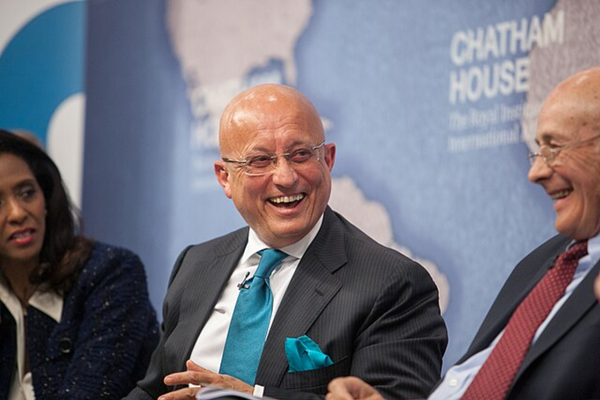THERE is a multitude of reasons why serial trophy winners like Celtic provoke such antipathy, such animosity even, among those outside their own sizeable fanbase.
Academics and psychologists have studied in forensic detail why those who dominate in their particular field for extended periods of time are subjected to such negativity and have come up with numerous theories to explain it.
There is resentment and jealousy of their success, they are perceived as being arrogant and entitled, there is boredom at the lack of variety, there is increased criticism because of higher level of media exposure, there is a romantic desire for the underdog to prevail.
Supporters of clubs other than Aberdeen will certainly be cheering on the Pittodrie side when they take on their Parkhead rivals, who are bidding to complete their sixth domestic treble in no fewer than nine years, in the Scottish Gas Scottish Cup final at a sold-out Hampden this afternoon for one or more of those reasons.
There is, though, further rationale for wanting Celtic, who beat Rangers on penalties to win the Premier Sports Cup back in December and wrapped up their fourth consecutive William Hill Premiership against Dundee United at Tannadice last month, to fall short of their heady objective.
Read more:
- The Journey: How Brendan Rodgers mapped out every milestone in Celtic's epic season
- Brendan Rodgers on why finance isn't only factor in Celtic impasse with Greg Taylor
- What Jimmy Thelin can learn about beating Celtic from the 'worst Aberdeen team ever'
Their monopoly of the Scottish game’s silverware is, to put it bluntly, a little dull. The regularity with which they scoop up major honours also reflects badly on the game on these shores. In short, it makes this country look like a bit of an uncompetitive football backwater.
Nothing can or should be taken away from Brendan Rodgers and his players for what they have achieved this term. Cameron Carter-Vickers and Paulo Bernardo both expressed their annoyance at the widespread perception that what they do is, because of the bigger budget their manager has at his disposal, easy this week. They were right to be irked.
Having more money to spend than your rivals helps your cause, but it is no means a guarantee of success. Celtic fans were feeling pretty chipper about their prospects at home and abroad going into the 2020/21 campaign after seeing more than £13m, far more than Rangers had spent, lavished on six new players. They had an annus horribilis.
Their city rivals, too, start off every new term with high hopes after a summer of incomings and outgoings down Govan way. The coming weeks will be no different. Centre-half Leon Balogun, playmakers Ianis Hagi and Tom Lawrence, winger Vaclav Cerny and defender Neraysho Kasanwirjo have all exited this week. They will need to be replaced in yet another rebuild.
If, as has been anticipated for months now, new owners take over then significant funds may well be made available to the new manager. He will need to spend them very wisely and hope his recruitment team are able to unearth a hidden gem or two in the transfer market.

If Callum McGregor and his team mates get the better of Graeme Shinnie and his – and they are 1/10 favourites to triumph with some bookmakers – in front of a full house in Mount Florida this afternoon they will deservedly write their names into the history books.
But what will that achievement say about Scottish football as a whole? Will it show that beating the Glasgow giants in a major tournament is now a feat that is beyond their top flight rivals’ capabilities due to the huge financial gulf which has opened up between them in modern times? It will be hard to argue otherwise.
Aberdeen’s turnover in the last financial year was a record £23.6m, a 49 per cent increase. But it was still less than a fifth of what Celtic, who took in £124.6m in the corresponding period, posted. Yes, they still have to use their resources wisely. But you, as the Americans say, do the math.
In the seven Scottish Cup finals which were staged between 2010 and 2016, Dundee United, Hearts, St Johnstone, Inverness Caledonian Thistle and Hibernian all tasted glory. Celtic and Rangers have been victorious all but one of the eight finals to take place between 2017 and 2024. The last team from outwith Glasgow to win with fans in attendance was Hibs nine long years ago.
Read more:
- Scotland's ultras aren't working class heroes - too many are 'still f****** peasants'
- Celtic midfielder Arne Engels reacts to speculation over future amid Atalanta link
- Steve Clarke laments costly keeper 'oversight' and begins 'Scottish grannies' search
The biggest and richest clubs in countries all over the continent, all over the world in fact, certainly fare better in league and cups than their smaller adversaries. But the FA Cup in England has been won by Chelsea, Manchester City, Arsenal, Leicester City, Liverpool, Manchester United and Crystal Palace since 2018.
Celtic only won the double last season because they were beaten by Kilmarnock on the artificial pitch at Rugby Park in their opening League Cup match in August. But Rodgers had just returned to the East End, he was missing a raft of key players and his side was significantly understrength.
You sense the side which has been the dominant force here for well over a decade now need to be bad as much as their opponents need to perform at their best for the status quo to be disrupted. That was certainly the case when they finished the Covid-19 impacted campaign trophyless.

The Scottish Cup final promises to be a great occasion. Jimmy Thelin’s charges will have a crowd of over 20,000 roaring them on once referee Don Robertson gets proceedings underway. That may well help them to give a far better account of themselves than they have in recent months.
These two sides served up a classic in the semi-final last year. It was 3-3 after extra-time and the defending champions only progressed after spot kicks. It would be great for the sport in this country if today’s encounter was every bit as close and just as dramatic.
It would also be no bad thing for Scottish football as a whole if Aberdeen ended their 35 year barren run in the competition, broke the holders’ domestic dominance and showed that teams other than Celtic and Rangers can still dare to dream.







